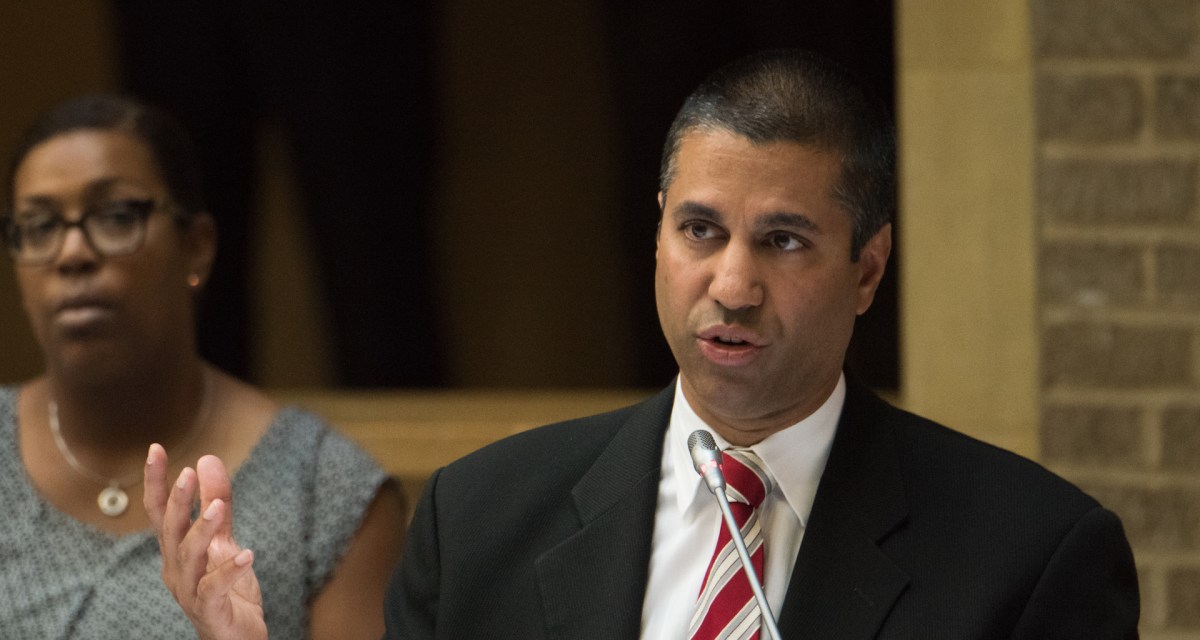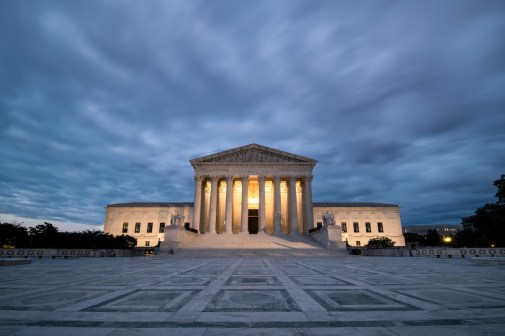GOP House members urge funding of FCC’s new broadband data collection method

A day after the Federal Communications Commission voted unanimously to use inaccurate data to distribute $16 billion in broadband expansion funding, Republicans on the House Energy and Commerce Committee urged their colleagues to give the FCC the funding to improve its data collection process.
Thirteen members, led by Greg Walden of Oregon and Bob Latta of Ohio, signed a letter on Wednesday imploring their colleagues in the Democratic majority to fully fund the Broadband Deployment Accuracy and Technological Availability — or Broadband DATA Act. The law, which President Donald Trump signed in March, was supposed to force the FCC to quickly adopt new data collection rules, including new verification techniques and maps to collect more granular broadband coverage data than it currently receives from telecommunications companies.
The commission currently relies on a less accurate method that measures broadband coverage by census block, which allow carriers to overstate their coverage areas.
But more than two months after the Broadband DATA Act was signed into law, it remains unfunded, and the FCC is no closer to launching its new, more accurate form of data collection. At their monthly meeting on Tuesday, the FCC’s five members agreed to move forward on an Oct. 29 auction date to begin distributing the initial $16 billion of a $20.4 billion Rural Digital Opportunity Fund without fixing its broadband coverage maps.
The money will be distributed to internet service providers that agree to expand their coverage areas over the next 10 years, but the signers of Wednesday’s letter want guarantees from that the regions of the country in the most dire need of better internet service are assisted first.
“As the COVID-19 pandemic has highlighted, the availability of broadband service is a critical driver of the economy, distance learning, and telehealth services,” reads the letter, which is addressed to House Appropriations Chairwoman Nita Lowey, D-N.Y. “Given the pivotal role that private communications networks serve in connecting Americans, we must ensure that the FCC has the tools it needs to facilitate efficiently the deployment of these networks. As you are considering future appropriations bills, we urge you to fund this law fully.”
A group of industry executives who testified last month before the Senate Committee on Commerce, Science, and Transportation said that upgrades to broadband infrastructure cannot be delayed any longer, and Steven Berry, chief executive of the Competitive Carriers Association, said that making the choice between delayed investment and collecting more accurate data is a “false choice.”
But as of Tuesday’s FCC meeting, the more granular data collection method is only going to be used in distributing the final $4.4 billion of the FCC’s new rural fund after the first $16 billion is parceled out under the unreliable census block method.
Despite a unanimous agreement between the five FCC commissioners on Tuesday to proceed with the auction, Jessica Rosenworcel, one of two Democrats on the commission, said rushing the delivery of the initial $16 billion — which Pai has said will only go toward areas of the country that are totally unconnected, not just underserved — is a “fatal flaw” in trying to close the digital divide. Rosenworcel also objected in her partial dissent to a rule that would prevent nearly 30 states from receiving federal broadband funds because of existing state broadband expansion programs. The rule is a “brazen disregard” for the agency’s legal obligation to expand broadband, Rosenworcel said, even as Pai has claimed that closing the digital divide is his highest priority since being picked to lead the FCC in 2017.
“We should be encouraging states to work with us and not penalizing them for their efforts to bring broadband to communities that are struggling. We have this exactly backwards,” Rosenworcel wrote.






